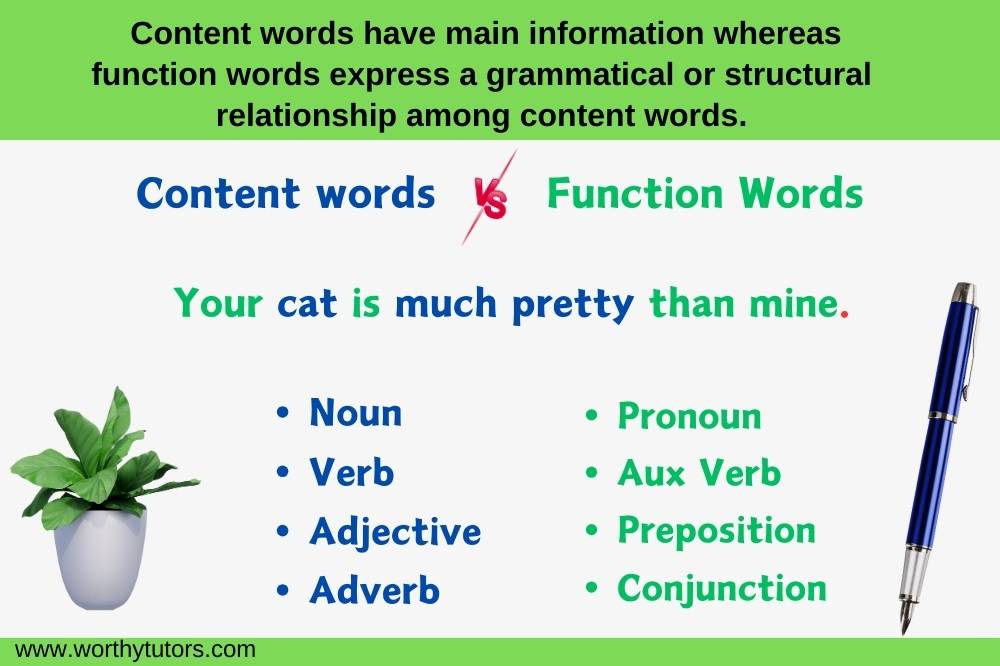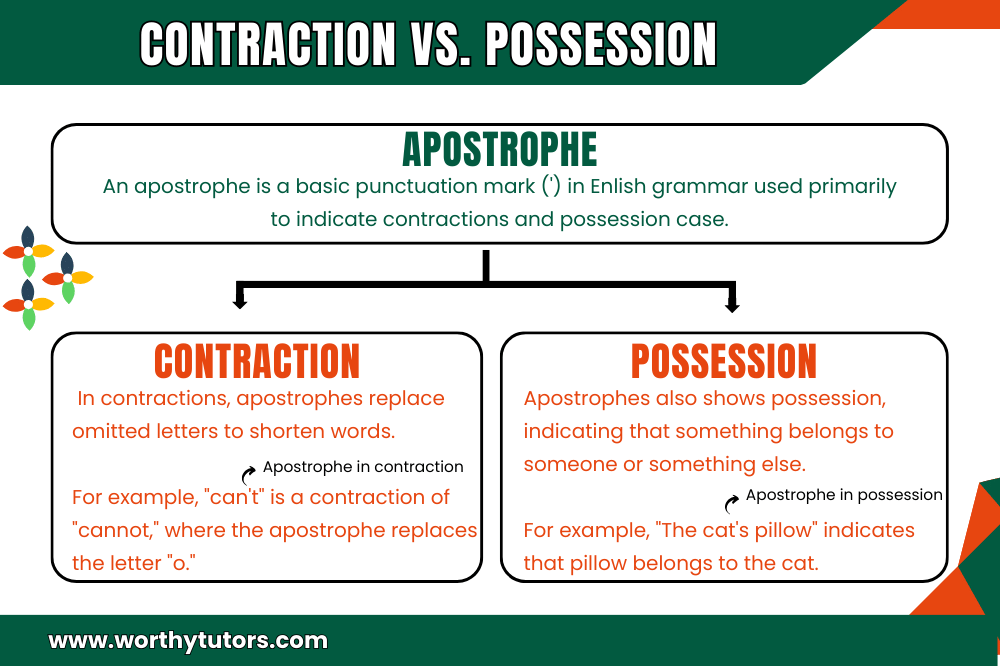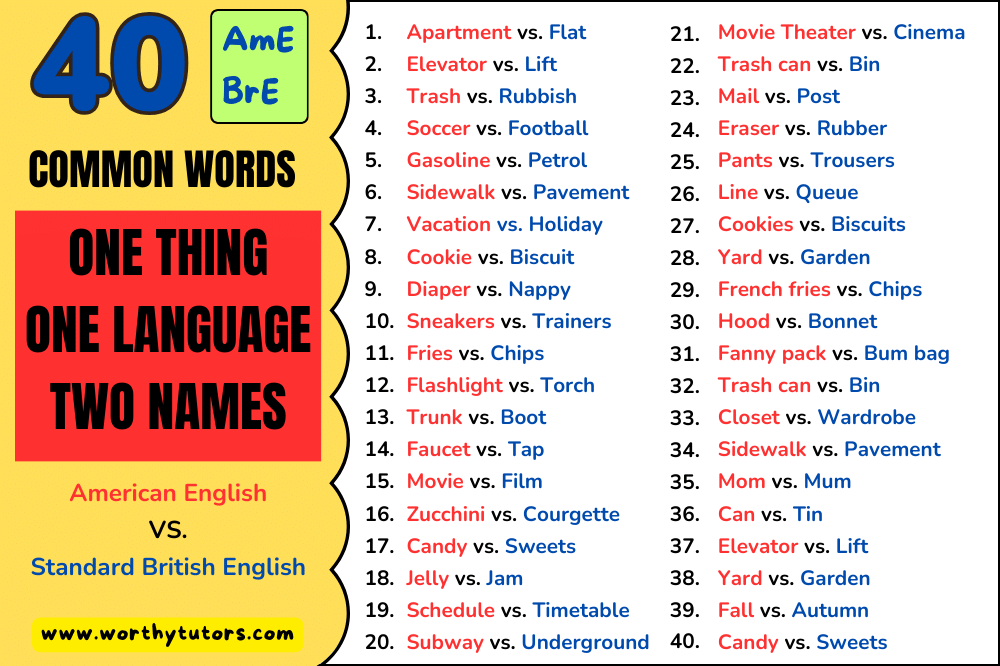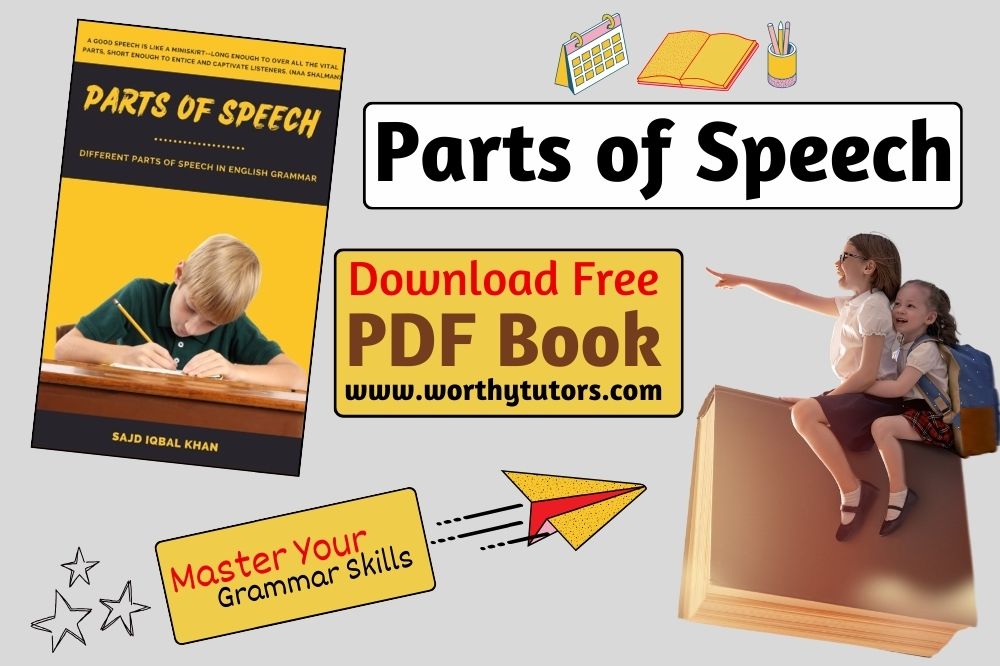
Content Words vs. Function Words
Difference between Content Words and Function Words
Words are basic elements to form up a language. Each word has some specific information in it or performs a specific function in a language. Some are naming words, some represent actions, some represent manners, and some represent relation between other words, phrases clauses and sentences.
We categories all words into different categories that are parts of speech. Parts of speech include noun, pronoun, verb, adverb, adjective, preposition, conjunction, interjection and determiners.
Moreover, we have two main categories of words: content words and function words. Each word of English language falls either in content words or in function words.
The sentences are formed up by combination of content words and function words. A sentence cannot stand with only content words or function words. So, a sentence has words of both categories.
Here will discuss how to differentiate content words and function words in a sentence.
What are content words?
Content words convey information and meaning in the sentence. Content words have main information whereas function words express a grammatical or structural relationship among content words. In other words, content words give us the most important information while function words are used to stitch those words together.
Look at the sentence below.
“Your cat is much pretty than mine.”
In above sentence, we have both categories of words. If we exclude function words, our sentence will look like
“Cat much pretty” (only content words)
We have all the information in above sentence but there is lack of relation among words and one is unable to understand what is meant. So, only content words are not necessary but function words are equally important that perform a grammatical function among the words.
Content Word Types
Content words include nouns, verbs (only main verbs), adverbs, and adjectives.
· A noun tells us about the subject.
· A verb tells us about happening of the action that is being performed on object
· Adjectives give us additional detail about subject/objects.
· Adverbs tell us how, when or where an action is taking place.
Noun includes all the naming words (the name of a person, place, idea or thing). Examples of noun are John, car, Karachi, smoke, happiness, tea, ocean, etc.
Verb includes action or a state of something. Examples of verb are eat, walk, deceive, hate, love, etc.
Adjective usually describes about subject or an object ( person, place or thing). It adds additional information about a noun or noun phrase e.g. red pencil. Examples of adjective are red, slow, cold, brave, coward, tiny, heavy etc.
Adverbs tell us about happening of an action that how action took place, where it happened or when something happens. It describes the manners of an action. Common examples of adverbs are quickly, how, which, why, slowly, etc.
The examples of content words in sentences
1. That is my car. (noun)
2. I wrote a letter to you. (verb)
3. My name is Anwar. (noun)
4. Why are you running? (adverb)
5. Do you know how to write? (adverb)
6. What is your job? (adverb)
7. How are you? (adverb)
8. This is a piece of cotton cloth. (adjective)
9. I love to cook. (verb)
10. Where do you live? (verb)
11. How was your journey here? (noun)
12. Did you have a good time here? (adjective)
13. I have a green car. (adjective)
What are function words?
Function words are the words that perform grammatical function among content words. They tell us about relationship between different words. Function words do not actually give definite information but these are used in joining and stitching other words (mainly content words) to make a comprehensible sentence. Function words include pronouns, auxiliary verbs, prepositions, articles, and conjunctions.
Pronouns are the words that we use for a noun. Common examples of pronoun are she, it, they, our, their etc.
Auxiliary verbs are used to establish the tense and tell us in which tense an action took place. Examples of auxiliary verbs are, was, were, been ,are, am, is etc.
Prepositions show relationships in time and space. Examples of prepositions are on, above, aside, below, by, under etc.
Articles show us something that is specific or no specific. Articles include a, an, and the.
Conjunctions are the words that joint different words, phrases, clauses or sentences. The common conjunctions are but, than, and, however, therefore, if etc.
The examples of function words in sentences
The below sentences contain multiple function words. The type of each function words in the sentence is mentioned in front of the sentence.
1. That is my jacket. (auxiliary verb)
2. I wrote a letter to you. (pronoun)
3. The way you speak is eloquent. (article)
4. Her name is Emma. (pronoun)
5. Why are you running? (auxiliary verb)
6. The cat is under the table. (preposition)
7. Today is raining therefore the train is late. (conjunction)
8. I love to cook. (pronoun)
9. John and Sophie live in Dubai. (conjunction)
10. My pen is in your pocket. (preposition)


